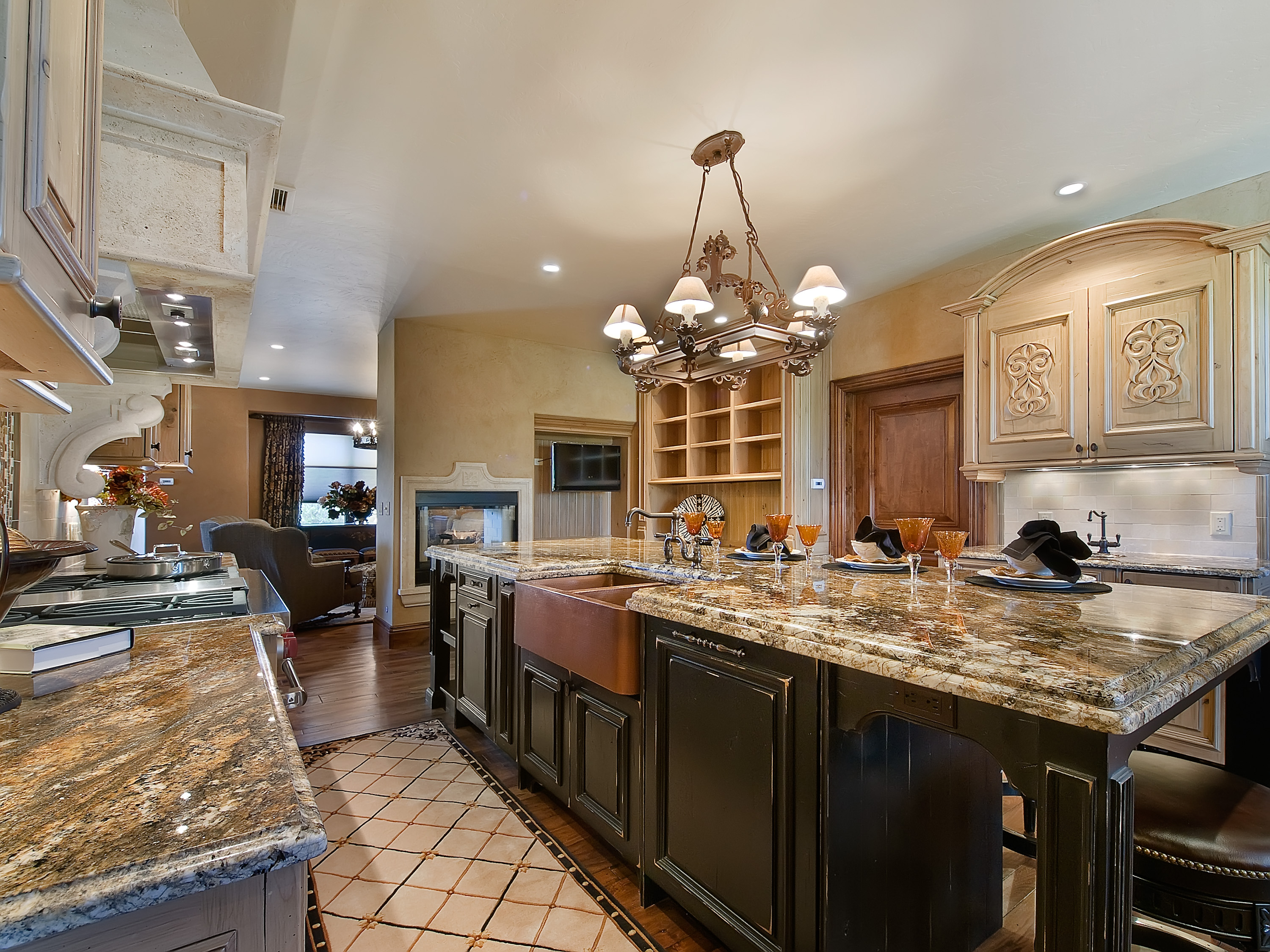Granite, Quartz and Marble, Oh My!
So Many Types of Stone, But Which One is Right for Me?

Granite Slab & More in Denver, CO
Does this sound familiar? You are ready to remodel your kitchen and bathroom and become paralyzed with all the countertop options available. While opinions may vary, we believe you can’t go wrong with stone. Of course, there are various types of stone to choose from as well. However, when you start to explore the respective benefits and small drawbacks of granite, marble and quartz, you can narrow down your options to align with your lifestyle.
Glorious Granite Stone
Solid, durable and stain-resistant, granite is the most commonly used stone for kitchen and bathroom counter spaces. It holds its number one position for good reason since this natural stone can easily withstand high temperatures from cooking and serving hot meals in pots, pans and skillets. It also resists water marks and scratches, so this type of stone is tough under the harshest of conditions. Granite is as gorgeous as it is hearty with its amazing collection of impressive natural colors, which include black, gold, tan, gray, brown, off-white and taupe. You will often find granite that features two or more colors, including a base color splashed by striations and other pattern variations. This low-maintenance stone is perfect if you love cooking and would rather not need to worry about setting hot items on the counter without a protective towel. The only thing you need to do is occasionally apply a protective sealant to keep your granite looking good.
Pros
Granite is low-maintenance and bursting with beautiful natural colors.
Con
Granite is porous and needs to be sealed correctly.
Kaleidoscopic Quartz Stone
Nearly identical in quality and durability to granite, quartz features one difference: it is not naturally occurring. Quartz countertops are made from 93 percent crushed quartz, but the Canadian manufacturer adds a seven percent resin mixture that includes dyes to give quartz its kaleidoscopic coloration that makes it comparable to granite; even sometimes surpassing its beauty due to the ability to create a greater spectrum of colors and color schemes. You might not choose quartz if it weren’t for the color processing since it appears dull in its natural state.
Pro
Quartz is non-porous, which means you never need to add any sealant, making it virtually no-maintenance.
Cons
The drawbacks associated with quartz are that it is often cold to the touch and can fade and change colors with long-term exposure to direct sunlight. Also, the color patterns are not uniform.
Marvelous Marble Stone
Marble is a colorful and natural stone, which means that you can find marble in a stunning variety of colors and patterns. This stone is also highly porous, which, while structurally sound, the porosity makes it rigid and more vulnerable to heat, chemical solvents, acidic substances and scratches than other types of stone noted.
Pros
Marble is breathtakingly beautiful in its natural colorings, and it is structurally sound.
Cons
Marble stains easily unless you quickly wipe up spills and messes, so it is important to apply protective sealants. Additionally, marble’s colors darken over time.
Costs
While all three types of stone cost more than other options like laminate, their respective cost to each other is comparable although quartz can cost somewhat more than granite in some situations. Since you are making an upgrade you have probably saved for, it is important to choose the stone that appeals to you and fits your lifestyle best.
If you have more questions about new countertop materials for your home, we can help you sort it out. We hope you reach out to us for more information.
